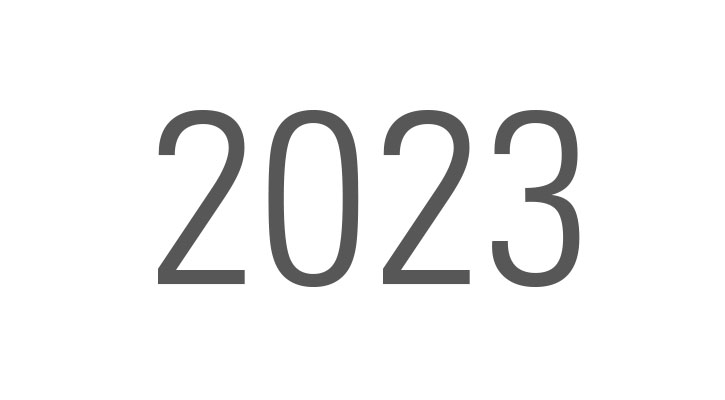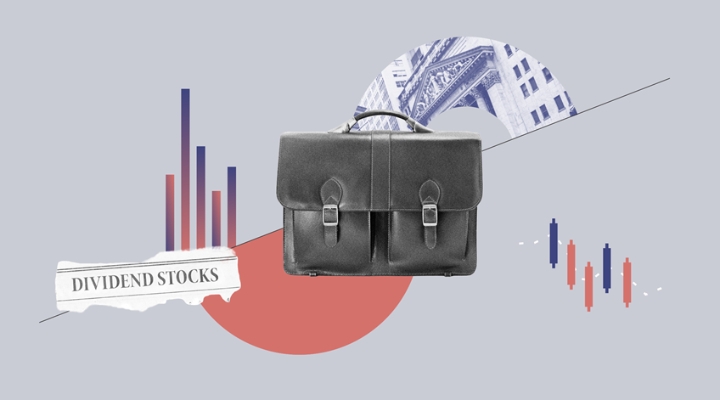James Gard: Welcome to Morningstar. With me today in the studio is John Stopford. He is Manager of the Ninety One Diversified Income Fund.
Welcome, John.
John Stopford: Hi.
Gard: So, in terms of income, it's been a very dramatic year. I mean, how have you navigated the ups and downs of the volatility?
Stopford: Well, the downs have been pretty dramatic, and fixed income has been a significant part of that. We invest wider than that. We own resilient equities and property as well. But this year has really all been about defence. We're a naturally defensive strategy, but we've been even more hunkered down.
Gard: Yes. And you mentioned bonds. I mean, yields are now higher, which is, on one level, attractive, but the volatility must be putting off some investors. Do you think this year is an aberration in terms of fixed income? Or do you need to rethink what bonds do in a portfolio?
Stopford: I think you need to rethink a little bit. We've been in a 40-year bond bull market, and we basically think that's over. We think we might now be in an environment where inflation on average and interest rates are somewhat higher. And so, the big tailwind that balanced funds have had historically, I think, may not be there. So, returns maybe more disappointing. But also, the danger is that correlations between bonds and equities are higher, so they tend to move together. And so, we're used to having them as a diversifier in portfolios, and if that doesn't work, you definitely have to rethink what you do.
Gard: Right. Okay. So, looking ahead to next year, I mean, they're starting to become an assumption in the market that the Fed may not raise rates as aggressively as some people think, and we may be looking at a lower peak for interest rates in the western world. How do you factor that in in your portfolio decisions? And how do you navigate that sort of uncertainty?
Stopford: Well, I think one of the things for us is bonds, particularly duration, so government bonds are essentially maybe more of a tactical asset class now. But we might be moving into the right part of the cycle. So, we think inflation is broadly peaking around the world and may come down quite fast next year, and we think interest rates are close to peaking as well. And coupled with that lots of tightening, we think, will probably lead to a developed market recession next year. So, a combination of weaker growth, lower inflation and peaking interest rates is usually quite good for duration. So, we think there's a sequencing. We think you want to own things like government bonds and defensive high-quality investment grade corporate bonds going into next year. Equities probably fall further again, and in those circumstances, then there may be a buying opportunity later in the year in parts of the equity market.
Gard: Sure. So, you don't think there's an argument for sort of equity market rebound next year? I think there certainly seems to be – some parties seem to think that might be a possibility.
Stopford: Yeah, I think, by December equities may have recovered, but our worry is, they're trying to bounce now, and we think that it's a little bit ahead of itself. Yes, we're close to peak interest rates, but equities haven't really factored in potentially much lower earnings. And so, we think they're vulnerable going into the first half of next year, but that there may be a buying opportunity for later in the year.
Gard: Sure. Okay. So, it's kind of a patience play really, perhaps?
Stopford: Absolutely. And for us, defence is our sort of central tenet. We want to make sure that we give people ideally as stable an outcome as we can driven by income. So, we're not going to rush in the first whiff, I think, of hope, but actually, wait for a bit more of a sort of solid backdrop to start to build equity exposure.
Gard: Sure. Fair enough. I mean, in terms of, kind of, wider asset class mix, are there any asset classes that you think could outperform next year?
Stopford: Well, as I said, I think initially government bond markets probably selectively. So, we like markets hedged back to base currency where interest rates might peak sooner. So, there are some very leveraged housing markets in economies like Canada, Australia, New Zealand, and their central banks are probably going to be cutting this time next year. And if that's right, their bond markets, which look relatively cheap, could rally quite a lot. And then, we also quite like senior bank debt from good-quality banks in the U.S., Europe and to some extent, the U.K. where you're earning a yield premium but with relative safety. And unlike the GFC, we think this recession isn't going to be a banking crisis. It's going to be more of a traditional slowdown.
Gard: Sure. I think when we spoke earlier in the year, I think, in terms of equities, you were quite keen on financials as a sector. Would that still be the case as well as the corporate bond side?
Stopford: I mean, we are stock pickers and bond pickers. We don't tend to allocate to asset classes. But if you looked at the portfolio, we have a reasonable allocation selectively to financials. Areas we also like inevitably, because we're looking for resilient income, some parts of the staples sector. But generally, where we think companies have got pricing power and have been able to pass on prices to end consumers – pharma to some extent, and then, in more cyclical parts of the economy or the market exposure to Chinese growth next year might be interesting. It's been a terrible place to be this year, but we think things like – we own some copper producers Rio Tinto, some others, where we think they're well priced, they're more cash flow generative and income generative than they used to be and maybe can benefit from a turnaround in other parts of the world that are decoupled from the West.
Gard: Sure. And I guess there's the danger they have too much gloom in that sort of the commodities space, and the commodities space can often surprise you on the upside as well.
Stopford: Yeah. And generally, we think we're in a sort of more inflationary environment. So, supply is constrained for a variety of reasons, so decarbonisation and so on. And also, maybe fewer places that you can actually find new deposits of certain things. And so, if demand picks up – and it has been pretty soft – that can quite quickly translate into better prices for producers. And they've been very disciplined in terms of CapEx, and so, we think that passes through largely to the end investor via dividends.
Gard: Sure. Yeah. I mean, they've had a good run in terms of paying special dividends and things like that. So, that seems to have paused for the time being, but I guess that could restart.
Stopford: Absolutely.
Gard: Yeah. So, you also mentioned before reliable compounders as a concept. Are there any particular other companies apart from miners, for example?
Stopford: Well, I mean, there are quite a lot in the staples area. Johnson & Johnson might be the classic. It's been paying dividends for donkey's years very reliably. It's leading or second in all of the major categories, and it's involved in a very stable part of the market. It's shown, I think, the capacity to outperform over time, and it pays a decent dividend. So, yeah, I mean, that would be a sort of good example of the kind of ideal stock that we'd like to own for the long term.
Gard: Yes. I mean, moving swiftly onto currency movements. I know this is a bit of a fool's game to sort of try and guess, certainly, predict that the dollar might come off its highs. Do you have any feeling on where, say, the pound might go next year in terms of – because we've had a good recovery, things seem to be stable politically, but…?
Stopford: So, we don't really take much in the way of currency risk. We hedge most of our exposure back to Sterling, which hasn't been helpful this year. I guess other funds have had a tailwind from a weak pound. But I do tend to think we are – the pound got very depressed, possibly for some good reasons, but it does look more likely that we might be approaching peak dollar. So, we're approaching peak rates. We might be approaching peak growth differentials with the rest of the world. Some of the problems might be easing a bit in China in energy prices and so on. And so, all of those, I think, would be helpful for the pound, but maybe in the context of a softer dollar rather than a much stronger exchange rate for Sterling.
Gard: Sure. Yeah. I mean, I guess that's helpful for emerging markets as well if there is peak dollar.
Stopford: Yeah, absolutely – which is another area we can find interesting things in, but safely ideally.
Gard: Yes. Okay. Excellent. So, thanks very much for your insights, John. For Morningstar, I've been James Gard. Thank you.





























